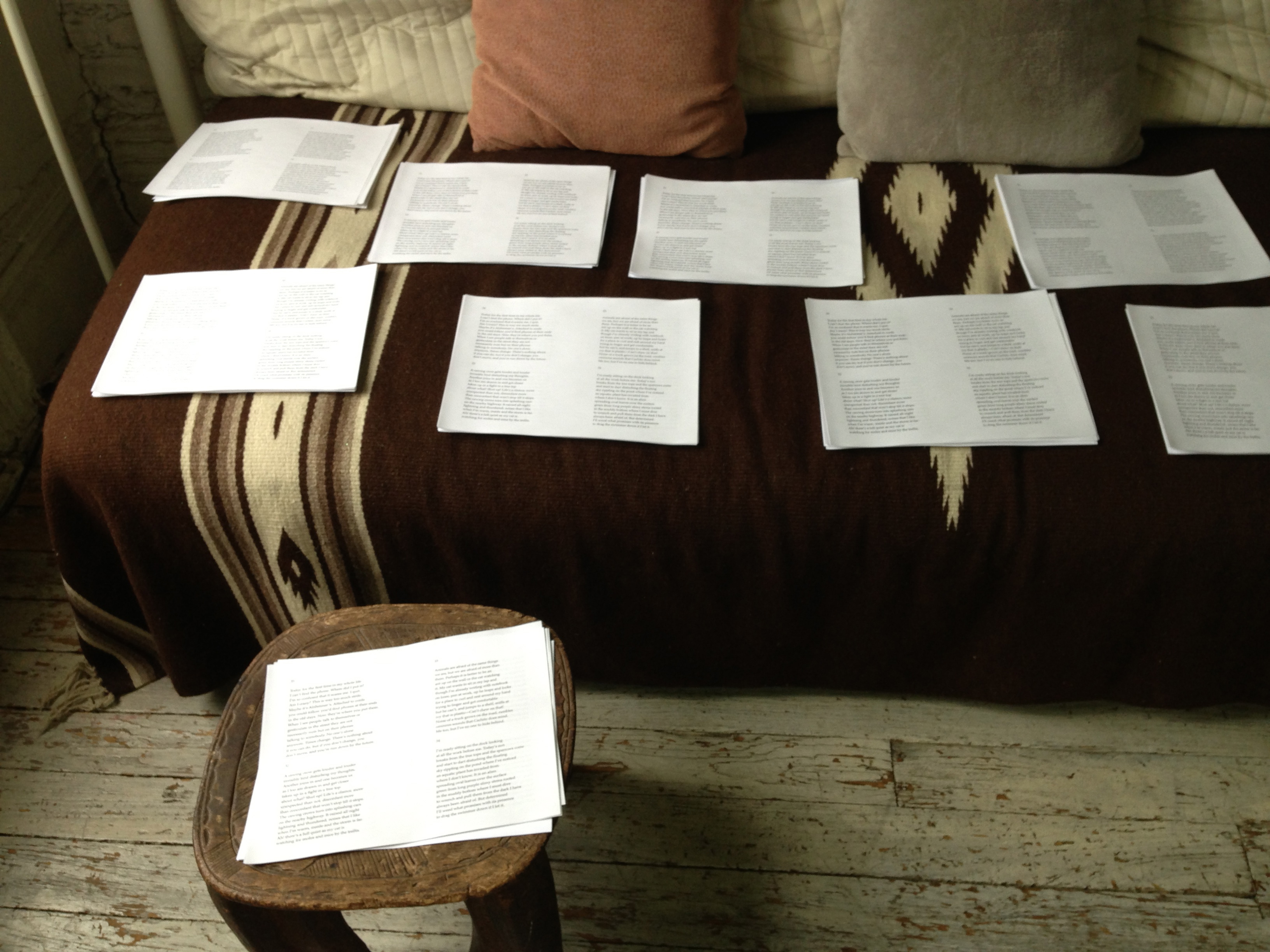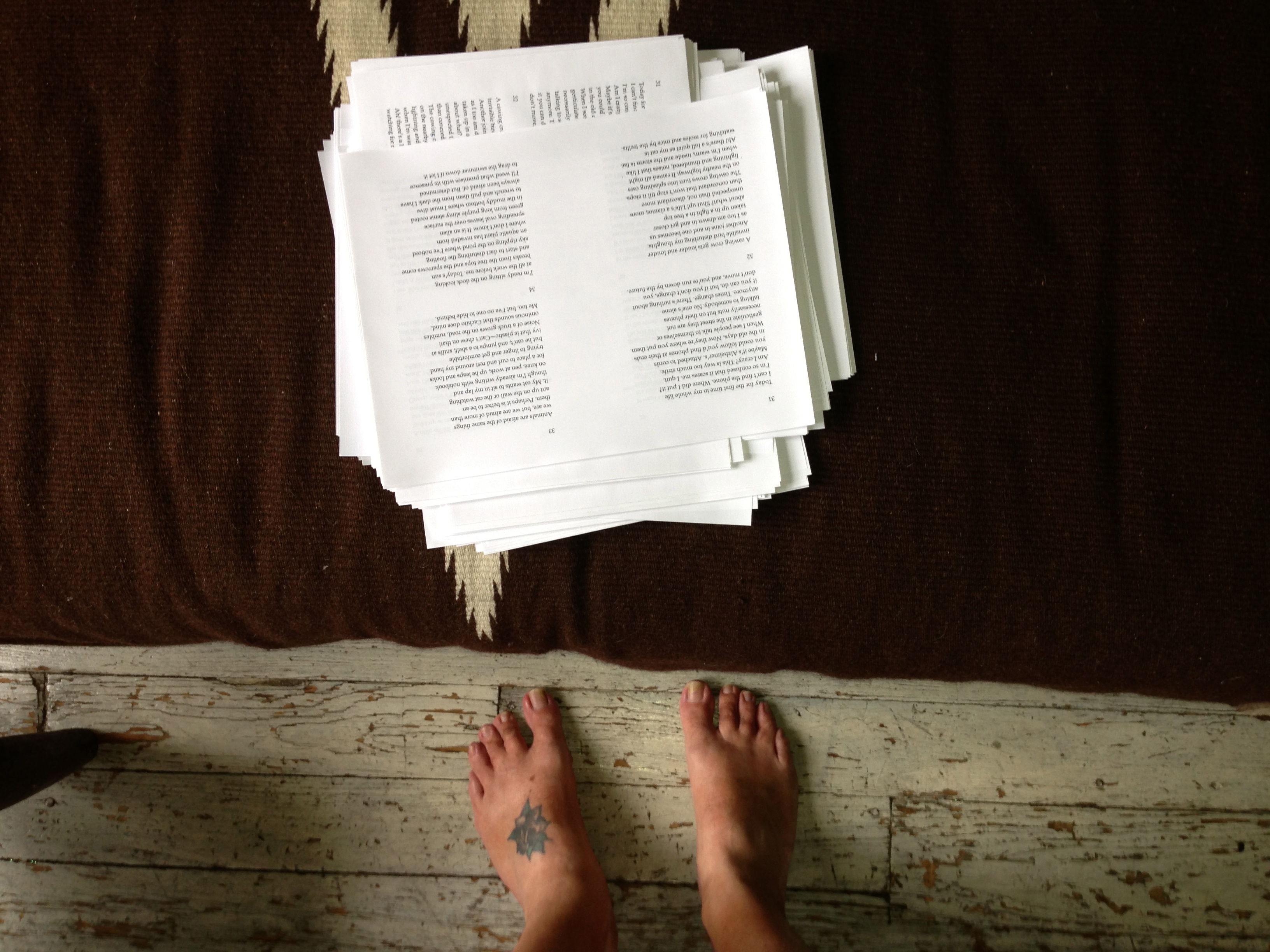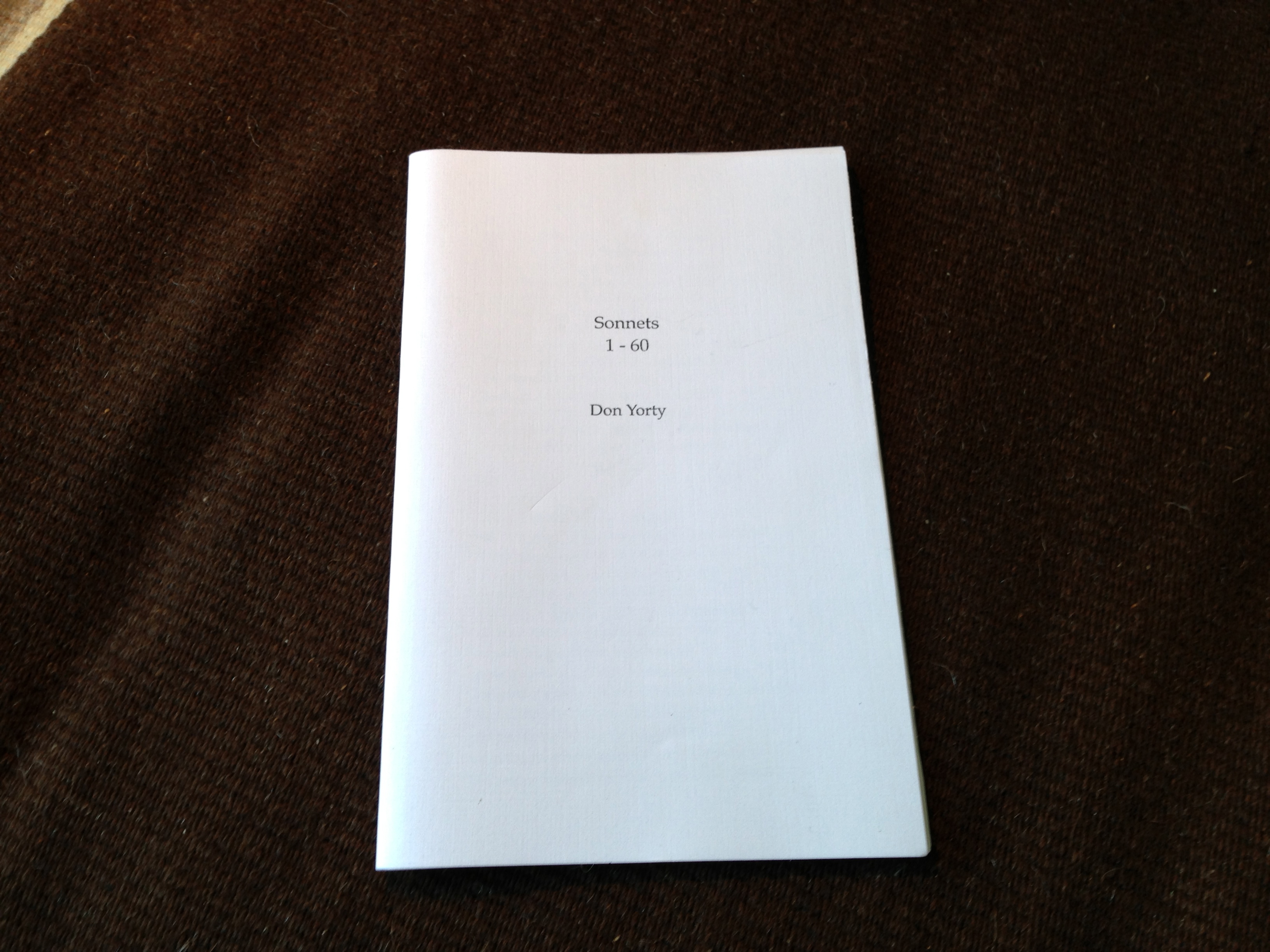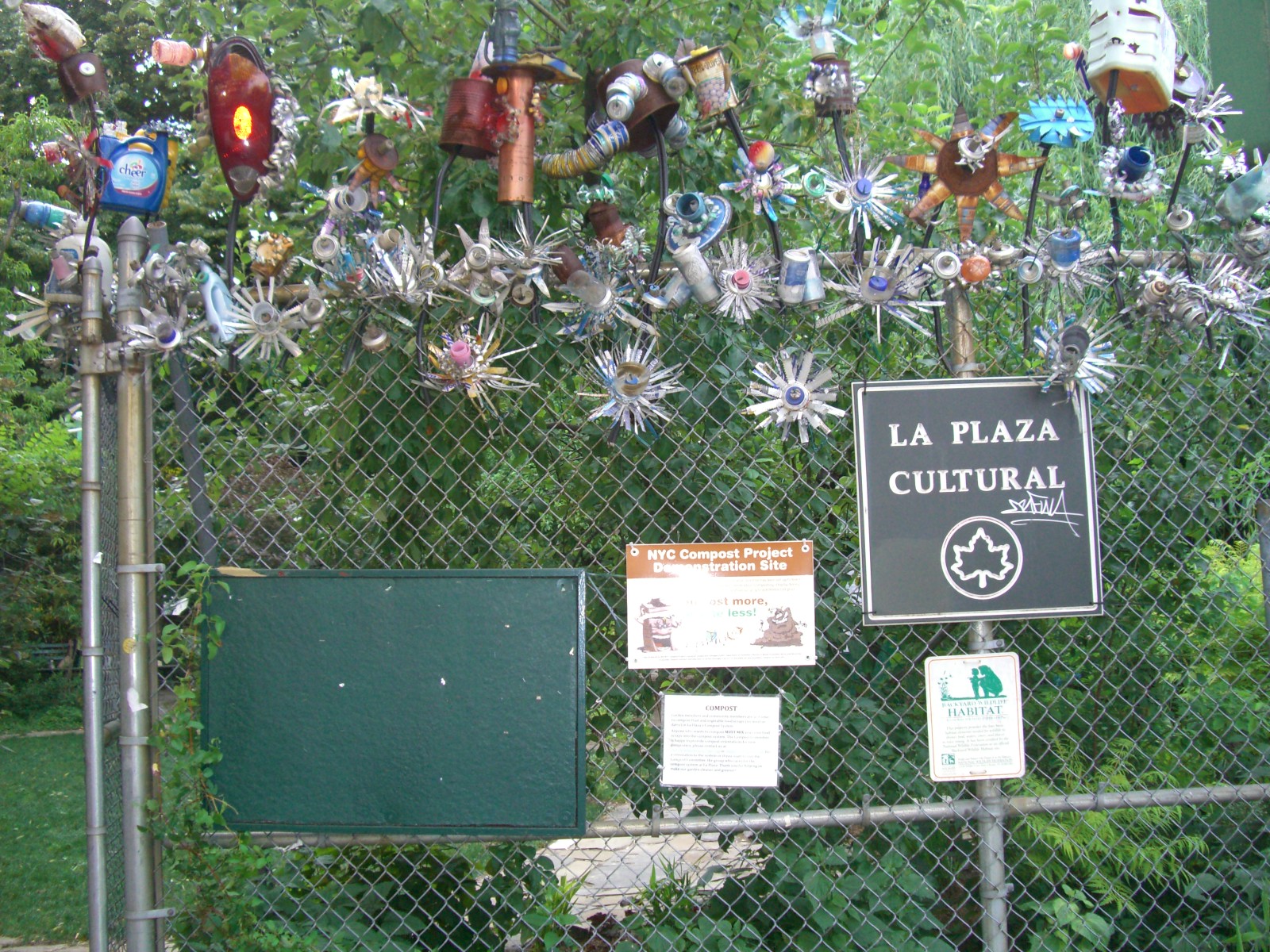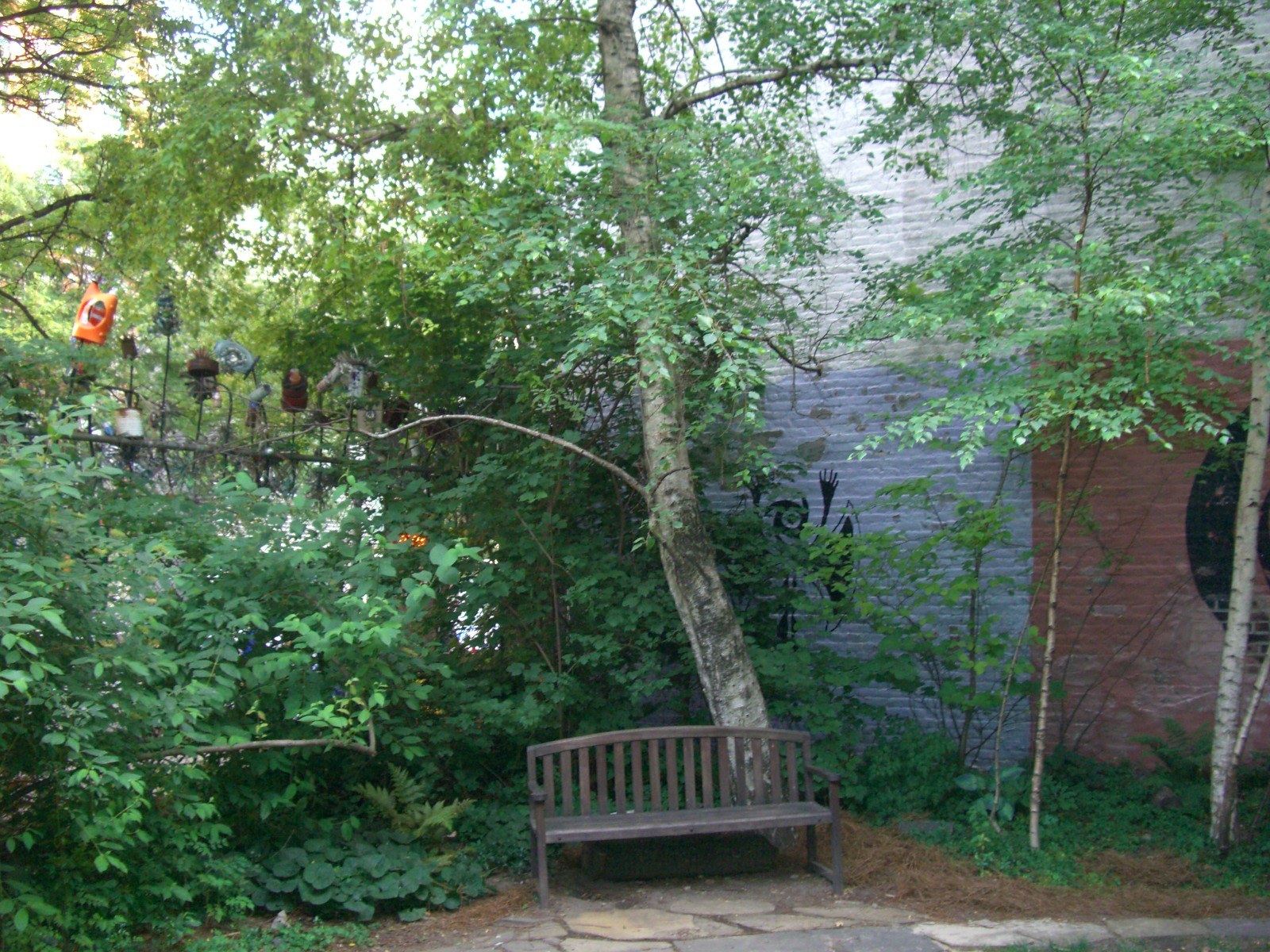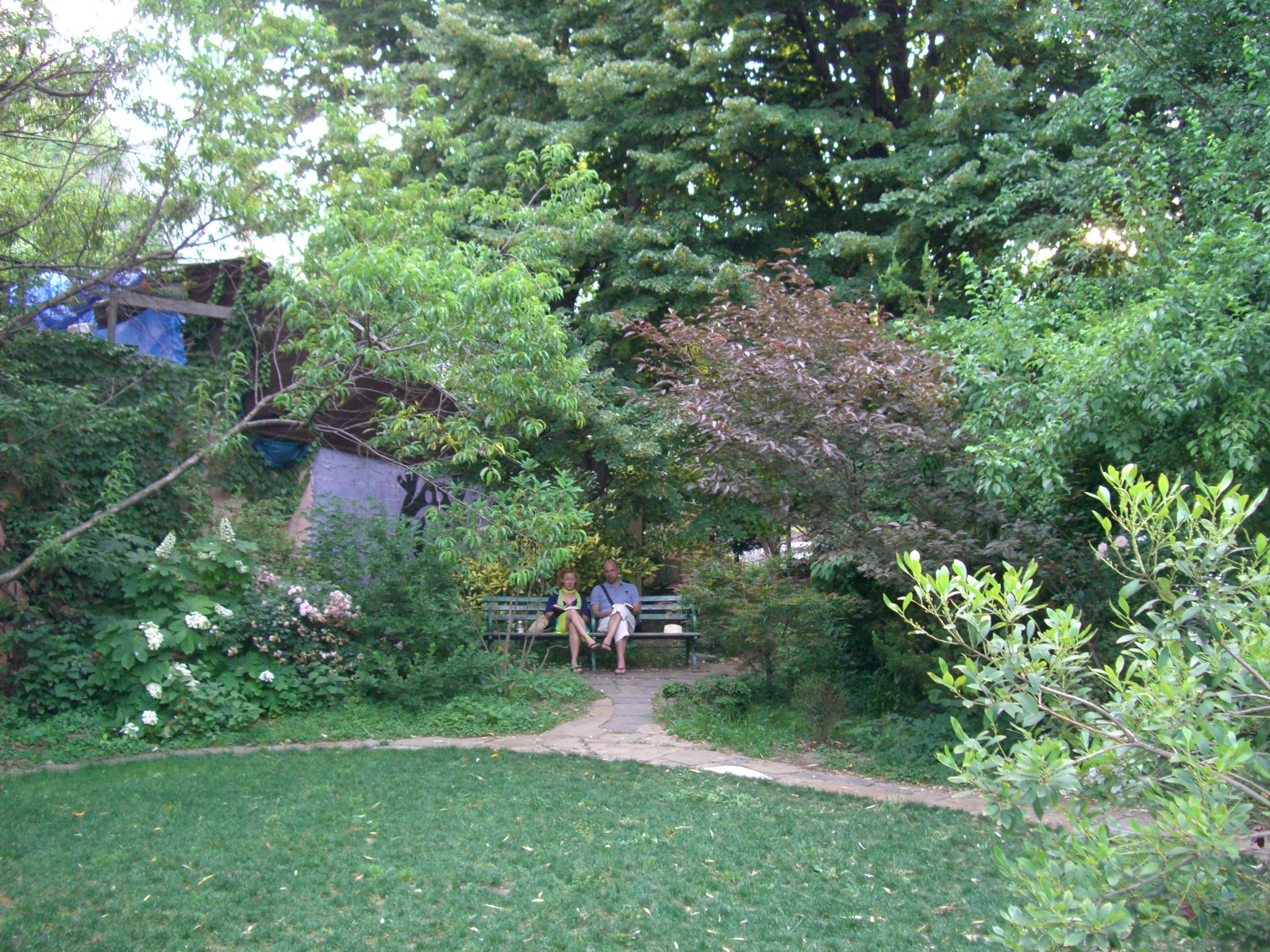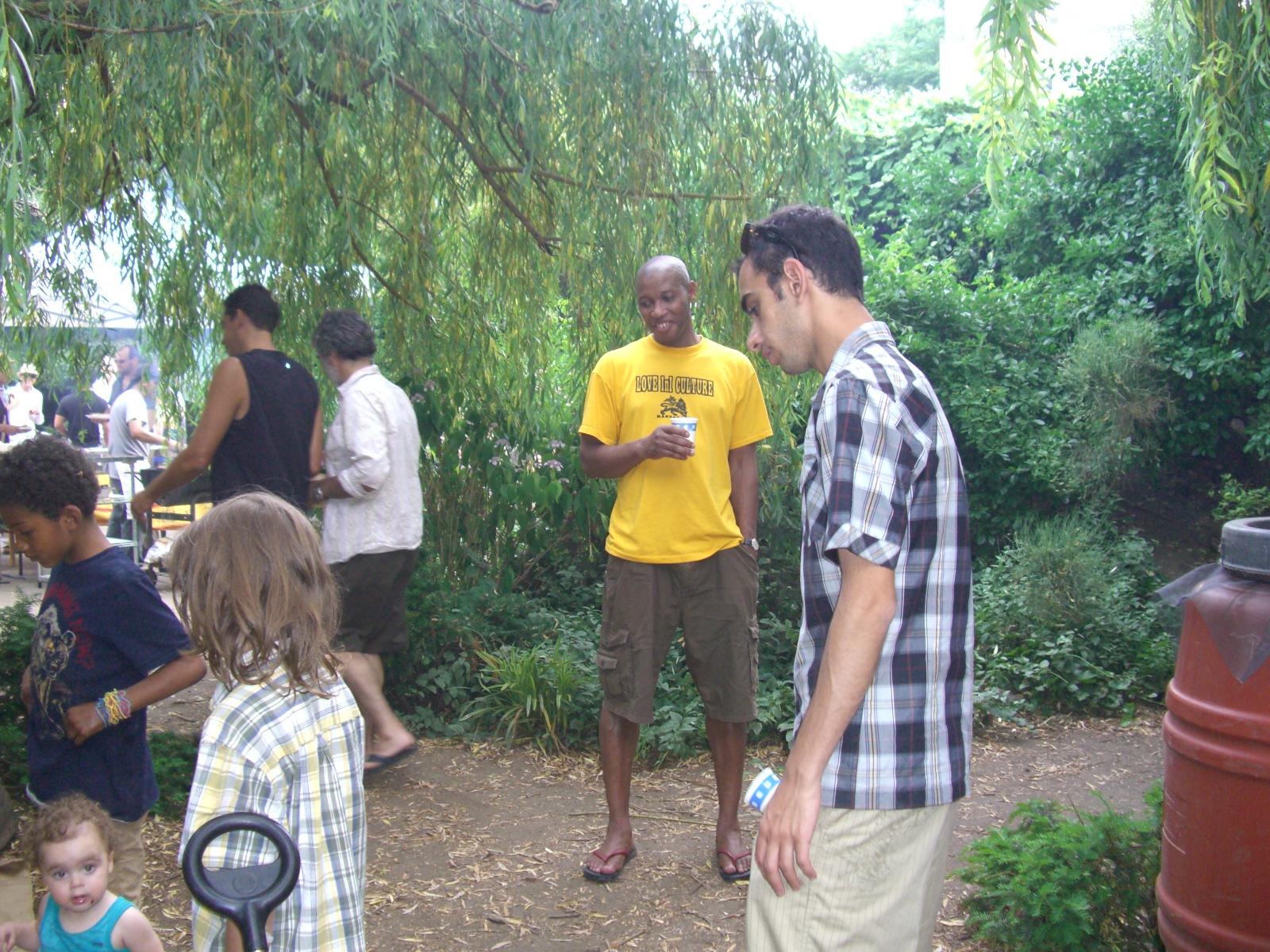…
I’ve been putting some chapbooks together, Sonnets 1 – 60. Working on the books myself and printing them out is helpful for the final editing whenever that may be. Just thinking of the poems in the hands of others helps me to see them better. The end of August was my deadline to actually send the sonnets off to some publishers for consideration, but as I began to prepare the manuscript, I saw the need for some revision and began rereading and re-editing. And there I am. I’ve had two publishers in my lifetime. In the 80s, Stephen Spera designed and printed A Few Swimmers Appear and Poet Laundromat for his small press, Philadelphia Eye & Ear. I think Stephen was hoping I would get famous and then he by association would get famous too. But that didn’t happen; in fact, I got involved in New York City politics in order to save a community garden, La Plaza Cultural, a struggle that took from 1987 until 2001 with battles in state, federal and city courts, battles in the park itself, and battles trying to organize unorganizable people and raising money to pay the lawyer. Politicians have it easy. They get paid for being politicians; it’s what they do. We the people most often have to work at something else, and after forty hours of that, we have to use whatever hours are left to battle the politicians when we have to. Fighting City Hall is rigged from the very beginning, but if you keep at it, you just might win.
…
Perhaps I am too easily side-tracked and go from one thing to the other. Perhaps I never seek out publishers because there is something about being published that’s a little like being dead. It’s over. Done for. There it is. That’s it. Not unlike a corpse in a coffin. Any erratum, any mistake you see lying there on the page is like a regret that can’t be done away with; it’s there for all to see until the next edition anyway, if indeed that happens.
…
…
I must say that I am happily hopeful that eventually someone will come along and publish the sonnets. People do take you more seriously when someone else publishes you. The man who published my novel, Paul Williams of Herodias Press, died not too long ago. May he rest in peace. Publishers believe in what you wrote, and they want others to read and believe it too, risking their own finances to do it. When you have a publisher, you are blessed. Until the day that someone asks to publish the sonnets, I’ll continue making my chapbooks at my own pace and handing them out to whoever wants one. If you see me and you want one, ask and it’s yours.
…
The Witch of Coös
…
I’ve been preparing a vimeo of Robert Frost’s wonderful reading of The Witch of Coös. As strict as he was about meter (the poem is written in iambic pentameter), when he reads, taking on the character of the narrators, he adds asides, and makes the listener feel here and now. As the characters speak, a mother and her forty year old son, both mediums living in the hills of New Hampshire close to the Canadian border, the mother especially reveals herself, perhaps a hillbilly Lady Macbeth, whose guilt has made her a little crazy. There are buried bones in the cellar or are there?
The faintest restless rustling of the bones echoes the silken sad uncertain rustling of each purple curtain in Edgar Allen Poe’s The Raven. Frost changes some words from the original text as he goes along. How could that be becomes how that could be, and They had a grave in the cellar becomes They have a grave in the cellar. Who are they? Several murdered lovers or just one corpse’s pile of bones? We’d kept all becomes we’d kept up, and Frost takes out the word to in the line: The least I could do was to help dig their grave. Perhaps he noticed that to added an extra half foot, one extra beat, and he deleted it to make the line iambic pentameter: The least I could do was help dig their grave. Perhaps before Frost had wanted that extra beat like one more tap of the shovel packing down the grave. These changes might seem small, but they are also significant. Even poems written as well as Frost’s are never quite done. Frost, the master craftsman, can change things as he goes along, not set in stone but a stream still flowing. It is so hard not to want to change what you’ve written. Even Frost can’t help it. Enjoy the Witch of Coös.
…
…
La Plaza Cultural, a published work (and still a work in progress thanks to those who volunteer their time caretaking and gardening).
…
…
Some sonnets from 1 – 60
1
Looking at the springs, sitting in the sun
Something at my nape begins to tickle
Like the wind’s moving a hair there, fickle
On my bare neck between the scalp and trunk.
I’m reading the poet Bill Kushner—Ah!
His April Poems are wonderful to hold.
It’s April and I’m here with Bill—But no
Something’s crawling on my skin. Is it? What?
I scratch, and it vanishes like a thought
Forgotten, but it’s not. It walks. I pick
From my neck a beautiful round red tick
With many tiny moving legs, enough
To turn my thoughts from Bill to blood and death.
It knows I’m here, where I wanted to rest.
2
Every time I come it is the same
Running without end down the mountain stairs
Rocks, giant eggs and heads of dinosaurs.
Elegant woods, soft, expanding gently
Over everything, a promised dream
Of health, happiness, not bombed little kids
Without limbs, politicians getting rich
Off suffering—Away! I want to be
Among unfolding ferns and skunk cabbage
Where the warm bright sun thaws the ground still cold
Like Christ raising Lazarus. As I grow
Old it seems possible to really love
Even the startled snake scared in the leaves
But man—Who threw this bottle in the stream?
12
Curtis, when we cleaned out your room I took
Some of your books and the Mexican scarf
I bought you. Now it’s mine. You could say ours.
It’s stained in spots. Should I clean it? I look
See some of your blood, a cigarette burn.
I think I’ll wear it like it is, mindful
Of how you engaged the world in thoughtful
Conversation. There’s always more to learn.
I know with your scarf wrapped around my neck
It’s curiosity keeps me going.
I’ll never be afraid of death wanting
To know what’s going to happen next. Curtis
Even when you went crazy I enjoyed
Answering the phone and hearing your voice.
21
The butterflies of spring are small and dark
Not colorful and bright like butterflies
Of summer hovering from flower to flower
In beauty’s camouflage. Two butterflies
On the asphalt road laid with silver stone
Though small stand out. Because they’re dark I see
Wings lined with white flutter and rise up, gone
In blurry jagged flight through the bare trees
Whose branches, rusty buds blow in the wind.
There I lose sight of them like a prayer
Vanishes when other thoughts intrude. In
The woods a bird whistles and I’m aware
Of the three notes, a path I do not know
Although I’ve walked here many times before.
43
You do not tell a snake which way to twist
Its limb nor cats where they can or can’t walk.
And the same holds true for the sonnet, its
Thoughts are its own. Through me you hear it talk
Say what it wants. I’m the dumb man who shows
His hands for meaning. What are words? They’re signs
That tell you it is dawn, but the dawn goes
Happily on its own. Words stay and mine
Are no different. I like my words, don’t get me
Wrong. I work hard, and am the one who strives
For you, more important than me, to read
What is not me but meant to be. What I’ve
Left you, reader, are these words I’m writing
That will tell you when I’m gone it’s morning.
